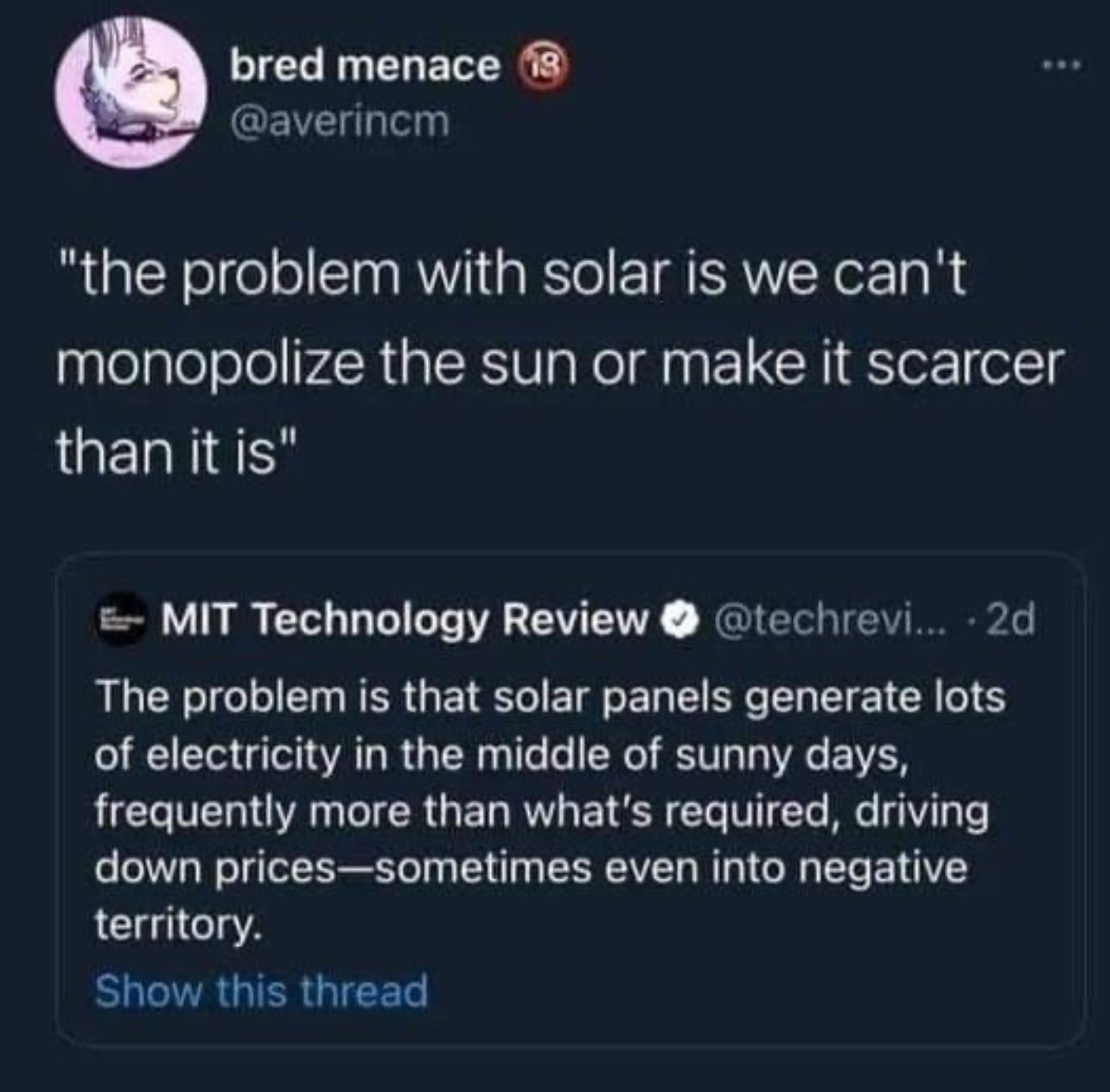this post was submitted on 02 Oct 2024
1702 points (95.6% liked)
Microblog Memes
6652 readers
3661 users here now
A place to share screenshots of Microblog posts, whether from Mastodon, tumblr, ~~Twitter~~ X, KBin, Threads or elsewhere.
Created as an evolution of White People Twitter and other tweet-capture subreddits.
Rules:
- Please put at least one word relevant to the post in the post title.
- Be nice.
- No advertising, brand promotion or guerilla marketing.
- Posters are encouraged to link to the toot or tweet etc in the description of posts.
Related communities:
founded 2 years ago
MODERATORS
you are viewing a single comment's thread
view the rest of the comments
view the rest of the comments

When speaking to the overall system, there are always inefficiencies with all forms due to the conservation of energy laws.
Similar arguments can be made regarding batteries, as resistance in the wires that connect the cells in a pack together waste power as heat. While overall this may be minimal, the physics provide hard limits here. Unless a superconducting material is made commercially viable without needing to be super cooled, these limits will always be nontrivial.
My entire point is, battery tech has reached a high level of development and there is significantly more we're trying to achieve with the technology (whether solid state or otherwise), meanwhile, I would argue that hydrogen hasn't even reached the same level of development as battery technology, yet everyone seems to think it's a dead end.
It's hard to argue with the energy density per kg of hydrogen as a material. It's possibly one of the highest specific potentials of existing technology. What we should be doing is trying to create power from that with as few losses as possible. Fuel cell technology was, in my mind, the first real push in that direction, when it didn't immediately pay off, we gave up. Meanwhile, alkaline and cadmium based batteries were much worse, but we used them, and continued using them for decades before lithium based batteries became more commercially viable.
I see battery research as looking for the last, most efficient type of battery, while hydrogen isn't even half way through the possible research we could do on it. Forgetting hydrogen, while it's in the infancy of the research, for batteries that are very nearly as efficient as physics allows for, to me, is doing ourselves a disservice as a society.
I have no idea what further research into hydrogen will yield. Maybe you're right and it's going to go nowhere, maybe not. We don't know unless we keep trying, same with batteries, same with kinetic storage (flywheel/gravity systems), same with thermal storage..... There's just a lot of material science we can experiment with that wasn't really something that was possible before now.
I still think it's worthwhile, clearly you disagree. I appreciate the discussion either way.
Have a good day.